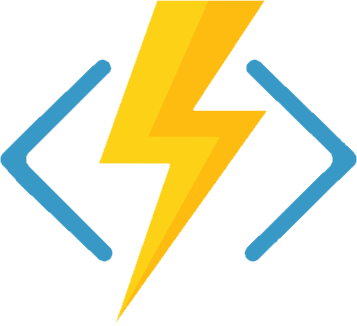I’ve been working fiddling with a better way to receive a notification from an Azure Function that has encountered an exception.
There are probably a few approaches to doing this, some that involve code others that do not.
My first choice, is to try to take the no-code or low-code approach.
So to get things going I created the following Azure resources:
XXX-rgResource GroupXXX-funcappFunction AppXXXstcaccStorage AccountXXX-funcappApp Insights
I added a function to my Function App, HttpTrigger1 that contains the following code:
|
1 2 3 4 5 6 7 8 9 10 |
using System; using System.Net; using Microsoft.AspNetCore.Mvc; public static IActionResult Run(HttpRequest req, ILogger log) { log.LogInformation("C# HTTP trigger function processed a request."); throw new NotSupportedException(); } |
Navigate to the Function App in the Azure Portal, and click Application Insights on the Overview tab.

Click Alerts and then click New Alert Rule.

Click Add under the Conditions section.
In the filter, type failure and then select HttpTrigger1 Failures.

Configure the Alert Condition with the following settings:
- Set Operator to
Greater than or equal to - Set Aggregation type to
Count - Set Threshold value to
1
Click Done.

Under the Actions section, click Create action group.

Configure the Action Group with the following settings:
- Set Action group name
- Set Short name
- Set Resource Group to the resource group you created
- Check Email in the Email/SMS/Push/Voice blade
- Enter an Email address where you want to receive notifications
- Set the Enable the common alert schema to
Yes
Click OK.

Navigate back to the HttpTrigger1 and click Run a couple of times to generate some exceptions.

In 2 to 3 minutes, you should receive an email that the alert has fired.

In about another 2 to 3 minutes you should receive another email letting you know the error has been resolved.

This is a little deceptive, assuming the code is what caused the exception, which in our case it is, the alert is not “really” resolved, it just means it hasn’t fired in a minute or so.
What if you wanted to receive an email notification immediately? According to the documentation, it is not possible to reduce the latency on when alerts are fired.
So is there another way? Stay tuned.
Related Articles
- 4 reasons no-code is the new Agile https://sdtimes.com/lowcode/4-reasons-no-code-is-the-new-agile
- Log data ingestion time in Azure Monitor https://docs.microsoft.com/en-us/azure/azure-monitor/platform/data-ingestion-time
Discover more from Matt Ruma
Subscribe to get the latest posts sent to your email.


Hi,
Great article to start with my current work. Could you put pointer for “So is there another way? Stay tuned.”
Cheers